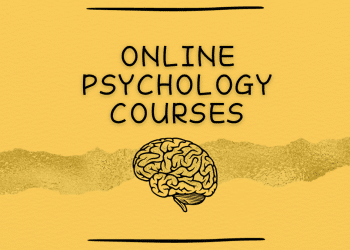Caring for a vulnerable loved one is a gratifying process. Yet, the fact stands that it can also be a very overwhelming, frustrating, and exhausting process, leaving the caregiver feeling depleted. According to recent research, 40% to 70% of caregivers report symptoms of anxiety and depression. American Psychological Association further reports that 30% of caregivers seriously consider suicide.
Caregiving stress, if left unmanaged, can significantly impact one’s overall health. Fortunately, we have well-learned professionals stepping up to address this issue. Dr. Natanya Wachtel is one such professional.
A behavioral psychologist and seasoned pedagogue, Dr. Natanya is on a mission to make the world a better place. She co-founded New Solutions Network, a customer-centric marketing agency with a cause-driven model. She is also a Board Chair for Women Who Create, a non-profit organization providing scholarships and mentorship programs for women of color.
Given her philanthropic inclination and a desire to impart positive influence, Dr. Natanya has aptly addressed the problem of caregiving stress. She has launched Mindful Moments, a TV segment streaming on Hulu, Amazon, and Apple TV, with practical tips for managing caregiver stress.
In the series, Dr. Natanya has explored the causes, symptoms, and solutions around caregiver stress and burnout. Defining caregiver stress, Dr. Natanya notes its severity as well, “Caregiver stress is the physical and emotional strain that results from providing continuous care for another person. When the stress is prolonged, it can cause serious physical and mental health problems for those providing the care.”
Delineating the symptoms of this stress, Dr. Natanya elaborates that these can manifest in the form of physical and mental health problems – frequent body aches, abrupt changes in eating or sleeping habits, weight fluctuation, tiredness, irritable mood, loneliness, etc. are some initial indicators. Prolonged symptoms can translate into serious issues such as anxiety, depression, a weakened immune system with a risk of chronic illnesses, and more.
Considering the adverse effects of this problem, Dr. Natanya suggests some small yet applicable steps to regulate stress.
1. Complete Small Doable Tasks
Finishing small tasks is a great way to regain a sense of control. Select a small chore for yourself and enjoy a sense of fulfillment when you see the end product. It could be anything, from folding the washed laundry to sorting your bookshelf.
2. Practice Getting More Sleep
Yes, it takes practice to streamline your sleep cycle. A good night’s sleep is a must – the body gets time to recharge and repair itself from the day’s toil, making a person more energized for the coming day.
Start by avoiding junk food before sleep. Light exercise or a short walk before bedtime also helps a lot. Make sure to avoid any screen an hour or two before going to bed, as the blue light from gadgets disturbs the sleep routine.
3. Eat Well and Move Your Body
Dr. Natanya notes, “Proper nutrition is a crucial self-care component.” Be mindful of what you put in your body. Do not skip meals, and enjoy every bite with delight and gratitude. Physical activity is another way to feel better about yourself. A short walk around the block or morning body stretches can boost mental and physical health.
4. Find Inner Peace with Meditation
Achieve a sense of balance by calming your body and mind with breathwork and meditation. And don’t worry; it won’t take forever. You can meditate anywhere for just a few minutes – it does not need a designated time or place.
Start by setting small time intervals. Remember that it may take some time to achieve the peace and calm that meditation promises, so be considerate of your wandering mind.
5. Connect with Others
Scientific research has proven the benefits of wholesome human interactions again and again. Not only does it get rid of loneliness, but it also improves overall happiness, memory, and cognitive skills.
To unwind from caregiver stress, catch up with your family or friends face-to-face or via a call. If you do not have a close loved one to confide in, seek assistance from support groups, available both online and offline.
6. Write it Down
Writing provides clarity to various intersecting thoughts and worries in our minds. Journaling for 10-15 minutes can be immensely beneficial. You can make a gratitude list or write all your problems with possible solutions. It will let you ground yourself mindfully.
8. Laugh it Off
Laughter lightens the emotional overload. It can help improve circulation, oxygen intake, and muscle relaxation. It can also trigger and relieve stress response – by increasing and then decreasing heart rate and blood pressure, laughter leaves a very pleasant feeling behind.
Long-term benefits include a better immune system and pain relief. So remember to catch up with your favorite sitcom or watch a stand-up comedian to mallow out the tension in your body and mind.
Such minor but substantial changes in a caretaker’s routine can mitigate many symptoms and risks caused by caregiving pressure, making the responsibility easy on the mind and body.You can follow Dr. Natanya on LinkedIn for more informed tips and suggestions.
- “As chicaadmin at The Chicago Weekly, I curate trending national and international news stories with a focus on social justice and cultural impact. My passion for journalism and commitment to independent media are fueled by my Chicago roots and belief in the power of storytelling to connect communities. Follow me on Twitter for insightful commentary and news updates!”











